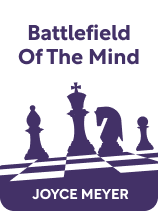

This article is an excerpt from the Shortform book guide to "Battlefield of the Mind" by Joyce Meyer. Shortform has the world's best summaries and analyses of books you should be reading.
Like this article? Sign up for a free trial here .
What is revelation knowledge? How is it different from head knowledge?
Author, speaker, and Bible teacher Joyce Meyer argues that one of the signs that we’re under attack by the devil is that our mind is full of uncertainty. She contends that this uncertainty is a product of reasoning that has gone “too far”—causing us to question God or our faith. To combat this, Meyer recommends that we lean on revelation knowledge rather than head knowledge.
Read more to learn about Meyer’s notion of revelation knowledge.
Revelation Knowledge
Meyer explains that Satan uses “reasoning” to sow seeds of uncertainty in our minds. When our mind is engaged in reasoning, it looks for the logic, or the “why,” behind what we experience. While this curiosity is part of human nature, Meyer cautions that reasoning that leads to confusion has gone “too far.” If we find ourselves reasoning to the point where we’re questioning God’s teachings or our faith, Meyer explains that our search for logic has become a tool for the devil.
Reasoning is dangerous, Meyer explains, because if there is a disagreement between our mind and our spirit, we may reason our way into believing that our rational mind is right and our spirit is wrong. In doing so, we may talk ourselves out of following God’s will. For example, we might talk ourselves out of volunteering at a charity event because we convince ourselves that we have more important things to do and the event will be fine without us. Meyer reminds us that reasoning is subordinate to the spirit in a balanced mind. If logic and reasoning tell us one thing and our spirit tells us another, we should always follow our spirit.
Reasoning can also be dangerous when it makes us question God’s plan for us. This can happen when we have experiences that are difficult for our rational minds to digest—like if we lose our job unexpectedly or a storm damages our property. At such times, we might get caught up asking “why” these things happened, and may end up in a place of confusion and negativity. Meyer advises us to instead turn to our faith, which can help us be at peace with the unanswered “why” behind our experiences more than reasoning can. She explains that God uses unanswered questions in our lives as a way to solidify our faith, helping us focus less on our worldly issues and more on our spirit.
Meyer uses her own experiences to propose that letting go of reasoning brings us closer to God and helps us have a more positive life. She explains that pursuing “head knowledge,” or knowledge from reasoning and logic, can make us unhappy and confused. Instead, she advocates for “revelation knowledge.”
What is revelation knowledge? Meyer describes it as knowledge that comes from God into our spirit. Revelation knowledge, she explains, has allowed her mind to rest.
(Shortform note: Meyer’s discussion of “head knowledge” versus “revelation knowledge” does not go into depth on the limitations or applicability of either. As written, the section suggests that she has “given up” logic and reasoning in general, which seems unrealistic. Her larger message seems to be that logic and reasoning are never-ending pursuits and, as such, if our happiness and peace of mind are contingent upon them, we won’t end up with a positive life.)
| Science Versus Religion? Meyer’s discussion of the pursuit of “head knowledge” as something to be overcome rather than celebrated can easily be interpreted as anti-science, as she casts the pursuit of logic and reasoning as antithetical to faith. Her portrayal of logic seems to diverge from the ideas proposed by the Vatican and other leading institutions of the Christian faith, which view science (or “head knowledge”) and religion as complementary rather than at odds with each other. Some observers point out that some of the most celebrated scientists throughout history have also been Catholics: Descartes, Pascal, Mendel, Pasteur, and Copernicus are just a few examples. In fact, Georges Lemaitre, the cosmologist and Nobel Prize in Physics winner credited with proposing the Big Bang Theory, was a Roman Catholic Priest. Additionally, the Catholic Church has funded institutes of scientific learning (including the Pontifical Academy of Sciences) since the 17th century, and many famous cathedrals worldwide were built not only as places of worship but also as solar observatories. Pope John Paul ll explained that science and religion complement each other by saying, “Science can purify religion from error and superstition; religion can purify science from idolatry and false absolutes. Each can draw the other into a wider world, a world in which both can flourish.” Therefore, the Church does not ask us to eschew science and reason based on faith but to use our intelligence and curiosity to develop a deeper relationship with God, since, as Christians believe that the universe was created by God, studying God’s creation through science is a way to celebrate His creation. |

———End of Preview———
Like what you just read? Read the rest of the world's best book summary and analysis of Joyce Meyer's "Battlefield of the Mind" at Shortform .
Here's what you'll find in our full Battlefield of the Mind summary :
- How the Devil makes it his mission to corrupt our minds with negative thoughts
- How to recognize the signs that Satan is attacking your mind
- How to thwart Satan’s attacks and find happiness and fulfillment






